製造業経営の要諦―ものづくり新論の体系化とその有効性
(パート III)
Keys to manufacturing management:
Building and validating new manufacturing theories
(Part III)
特別セッション(1)
天坂格郎(青山学院大学, 名誉教授)
Kakuro Amasaka (Aoyama Gakuin University, Professor Emeritus)
天坂格郎(青山学院大学, 名誉教授)
Kakuro Amasaka (Aoyama Gakuin University, Professor Emeritus)
特別セッション(2)
伊藤宗彦 (神戸大学, 教授)
Munehiko Itoh (Kobe University, Professor)
伊藤宗彦 (神戸大学, 教授)
Munehiko Itoh (Kobe University, Professor)
要 旨:
急速に変化する経営技術環境下で、日本製造業の命題は世界市場から淘汰されないよう、顧客価値を高める最新モデルの高信頼性商品を他社に先駆けて提供することであり、積極的にチャレンジしなければならない。昨今の日本先進企業の度重なる大規模なリコール問題にみるように、開発設計を中心した信頼性技術問題は、科学的品質経営の要諦をなすグローバル品質保証技術不足への警鐘である。
本セッションのねらいは、JOMSA設立の基底にあるグローバルな視点での“製造業経営の要諦の体系化”の必要性を捉える。21世紀のものづくりのフロントランナーとして貢献できるよう、日本発の「ものづくり新論」というべき統合的な理論構築にかかわる学術の確立への布石であり、学会諸兄らの議論の場となれば幸いである。
JOMSA2015(特別セッション,学習院大学)とJOMSA2016(特別セッション(パートII),神戸大学)の議論を踏まえ、今回の特別セッション(1)では、日本的生産を代表する“トヨタ生産方式とSCM、国内外企業への拡がり”に焦点をあてる。特別セッション(2)では、ASEAN、とりわけタイにおける自動車企業のサプライ・チェーン・マネジメントに関する調査報告を行う。
2つのセッションから、ものづくりに関わる要素技術の学際的研究、グローバルな視点でのオペレーションに関わる産学の連携による研究・教育と実践に関連する情報交換を図る。
急速に変化する経営技術環境下で、日本製造業の命題は世界市場から淘汰されないよう、顧客価値を高める最新モデルの高信頼性商品を他社に先駆けて提供することであり、積極的にチャレンジしなければならない。昨今の日本先進企業の度重なる大規模なリコール問題にみるように、開発設計を中心した信頼性技術問題は、科学的品質経営の要諦をなすグローバル品質保証技術不足への警鐘である。
本セッションのねらいは、JOMSA設立の基底にあるグローバルな視点での“製造業経営の要諦の体系化”の必要性を捉える。21世紀のものづくりのフロントランナーとして貢献できるよう、日本発の「ものづくり新論」というべき統合的な理論構築にかかわる学術の確立への布石であり、学会諸兄らの議論の場となれば幸いである。
JOMSA2015(特別セッション,学習院大学)とJOMSA2016(特別セッション(パートII),神戸大学)の議論を踏まえ、今回の特別セッション(1)では、日本的生産を代表する“トヨタ生産方式とSCM、国内外企業への拡がり”に焦点をあてる。特別セッション(2)では、ASEAN、とりわけタイにおける自動車企業のサプライ・チェーン・マネジメントに関する調査報告を行う。
2つのセッションから、ものづくりに関わる要素技術の学際的研究、グローバルな視点でのオペレーションに関わる産学の連携による研究・教育と実践に関連する情報交換を図る。
Abstract:
The environment surrounding management technology is rapidly changing. For the Japanese manufacturing industry to survive in the world market, it will be necessary to boldly take up the challenge to lead other companies in offering the latest highly-reliable products that boost customer value. As evidenced by the repeated widespread recalls that have plagued leading Japanese companies in recent years, problems with reliability (particularly in the design and development process) are red flags pointing to a lack of the global quality assurance technologies that are the key to scientific quality management.
The purpose of this session is to underline the importance of systematizing the keys to manufacturing management from a global perspective―one of the underlying principles behind the establishment of JOMSA―as we lay the academic and scientific foundations for the building of a comprehensive theory that can rightly be called “a new theory of monozukuri” originating from Japan. It is hoped that this will allow us to make a solid contribution to the industry as a frontrunner in twenty-first century manufacturing.
Based on the discussion at the JOMSA2015 (Special Session, Gakushuin University) and JOMSA2016 (Special Session (Part II), Kobe University), the focus of Special Session (1) is “Toyota: Production system, SCM, and progress to inside and outside.” And the special session (2) focuses on “the supply chain management of automobile industry in ASEAN,” especially in Thailand.
In adopting these themes, we are aiming to exchange knowledge and information on research, education, and practical application by having industry and academia work together in conducting academic research on essential monozukuri-related technologies, as well as enabling operation from the global perspective.
The environment surrounding management technology is rapidly changing. For the Japanese manufacturing industry to survive in the world market, it will be necessary to boldly take up the challenge to lead other companies in offering the latest highly-reliable products that boost customer value. As evidenced by the repeated widespread recalls that have plagued leading Japanese companies in recent years, problems with reliability (particularly in the design and development process) are red flags pointing to a lack of the global quality assurance technologies that are the key to scientific quality management.
The purpose of this session is to underline the importance of systematizing the keys to manufacturing management from a global perspective―one of the underlying principles behind the establishment of JOMSA―as we lay the academic and scientific foundations for the building of a comprehensive theory that can rightly be called “a new theory of monozukuri” originating from Japan. It is hoped that this will allow us to make a solid contribution to the industry as a frontrunner in twenty-first century manufacturing.
Based on the discussion at the JOMSA2015 (Special Session, Gakushuin University) and JOMSA2016 (Special Session (Part II), Kobe University), the focus of Special Session (1) is “Toyota: Production system, SCM, and progress to inside and outside.” And the special session (2) focuses on “the supply chain management of automobile industry in ASEAN,” especially in Thailand.
In adopting these themes, we are aiming to exchange knowledge and information on research, education, and practical application by having industry and academia work together in conducting academic research on essential monozukuri-related technologies, as well as enabling operation from the global perspective.
JOMSA特別セッション(1)
JOMSA Special Session(1)
演題:「トヨタ生産方式とSCM、内外への拡がり」
Title: Toyota: Production system, SCM, and progress way
司会:天坂格郎 (青山学院大学, 名誉教授)
Chair:Kakuro Amasaka (Aoyama Gakuin University, Professor Emeritus and Doctor)
発表1:「TPS 展開の鍵 (1):生産管理とSCM」
Presentation 1:“The key to TPS progress (1): Production control and SCM”
三浦 紀文 (中央発條(株) 執行役員)
Norifumi MIURA (Chuo Spring Co., LTD., Officer)
発表2:「TPS 展開の鍵 (2):生産技術とものづくり」
Presentation 2:“The key to TPS progress (2): Production engineering and Manufacturing”
山田 敏博 (豊田エンジニアリング(株) 代表取締役社長)
Toshihiro YAMADA (Toyoda Engineering Corp., President)
発表3:「TPS 展開の鍵 (3):製造技法と高生産性」
Presentation 3:“The key to TPS progress (3): Manufacture technique and high productivity”
村田 明彦 (村田生産保全(株) 代表)
Akihiko MURATA (Murata Production & Maintenance Ltd., President)
Chair:Kakuro Amasaka (Aoyama Gakuin University, Professor Emeritus and Doctor)
発表1:「TPS 展開の鍵 (1):生産管理とSCM」
Presentation 1:“The key to TPS progress (1): Production control and SCM”
三浦 紀文 (中央発條(株) 執行役員)
Norifumi MIURA (Chuo Spring Co., LTD., Officer)
発表2:「TPS 展開の鍵 (2):生産技術とものづくり」
Presentation 2:“The key to TPS progress (2): Production engineering and Manufacturing”
山田 敏博 (豊田エンジニアリング(株) 代表取締役社長)
Toshihiro YAMADA (Toyoda Engineering Corp., President)
発表3:「TPS 展開の鍵 (3):製造技法と高生産性」
Presentation 3:“The key to TPS progress (3): Manufacture technique and high productivity”
村田 明彦 (村田生産保全(株) 代表)
Akihiko MURATA (Murata Production & Maintenance Ltd., President)
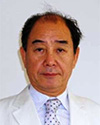 |
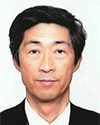 |
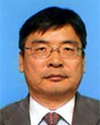 |
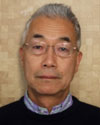 |
| 天坂格郎 Kakuro AMASAKA |
三浦 紀文 Norifumi MIURA |
山田 敏博 Toshihiro YAMADA |
村田 明彦 Akihiko MURATA |
要旨:
JOMSA2015 の特別セッション(1)では、超短期開発・生産プロセスの変革に視座し「開発・生産の高品質保証―製品設計と未然防止」に焦点をあてた。JOMSA2016 の特別セッション(パート2)では、“最適化開発・製品設計”と“最適化生産・サービス”に視座し、ものづくりのドライビングフォースである「開発・製品設計・生産・サービスの高品質保証」に焦点をあてた。
本セッション(パート3)では、日本的生産を代表する“トヨタの生産方式とSCM、内外への拡がり”に焦点をあてる。中でも、TPS 展開の要である生産企画、生産管理、生産技術、製造、トヨタサプライシステム、他企業へのTPS展開の実際に言及する。発表1では、グローバルの観点で、(1)国内外の車両工場でどの車種をどれだけ生産するか、同様に(2)ユニット・部品の内製/外注の生産場所をどのように配置するか、さらに(3)中央発條を例とするトヨタサプライシステムの展開について紹介する。発表2では、ものづくり戦略の要諦である、“多品種少量生産”を具現化する、“生産技術開発−、高稼働率を確保する機械加工ラインの工程設計”にフォーカスする。発表3では、近年、ものづくり戦略として展開している、“Total Quality Assurance Network Model”をベースとした、”製造技法−顧客の求める要求品質と結び付いたトレーサビリティシステムの構築“について紹介す る。併せて、内外企業へのTPSの拡がりについて例示する。
Abstract:
The focus of Special Session (1) (JOMSA2015) was optimized product design and optimized production management technologies, namely, assuring high quality in development and production through product design and fault prevention. Furthermore, the focus of Special Session (1) (JOMSA2016) was the driving force behind “monozukuri” manufacturing practices; namely, assuring high quality in development / product design, production and service.
In this Special Session (1) (JOMSA2017), we focus on “Toyota: production system, SCM, and progress way” representing Japanese production. In doing so, we will work the production planning, production control, production engineering, manufacturing, and Toyota supply system which are the important points of TPS deployment, and actual development of TPS to other companies, as follows; In report 1, we do appearance about (1) What kind of vehicles should be performed by what production scales?, and (2) the ratio of insourcing/outsourcing of units and parts, and those production places in internal and external automotive factories from a viewpoint of a global strategy. Furthermore, we introduce the state of deployment of the Toyota supply system in Chuo Spring、Co. Ltd. In report 2, we do a focus to process design of the machining line which realize "High rate of operation" in order to embody "multi-product low-volume manufacturing" as a key of manufacturing strategy, In report 3, we illustrate an establishment of traceability system for realizing customers’ demand quality based on a Total Quality Assurance Networking Model named Toyota’s QA network developed as a global manufacturing strategy. Connecting, we illustrate the spreading TPS to inside-and-outside companies.
JOMSA2015 の特別セッション(1)では、超短期開発・生産プロセスの変革に視座し「開発・生産の高品質保証―製品設計と未然防止」に焦点をあてた。JOMSA2016 の特別セッション(パート2)では、“最適化開発・製品設計”と“最適化生産・サービス”に視座し、ものづくりのドライビングフォースである「開発・製品設計・生産・サービスの高品質保証」に焦点をあてた。
本セッション(パート3)では、日本的生産を代表する“トヨタの生産方式とSCM、内外への拡がり”に焦点をあてる。中でも、TPS 展開の要である生産企画、生産管理、生産技術、製造、トヨタサプライシステム、他企業へのTPS展開の実際に言及する。発表1では、グローバルの観点で、(1)国内外の車両工場でどの車種をどれだけ生産するか、同様に(2)ユニット・部品の内製/外注の生産場所をどのように配置するか、さらに(3)中央発條を例とするトヨタサプライシステムの展開について紹介する。発表2では、ものづくり戦略の要諦である、“多品種少量生産”を具現化する、“生産技術開発−、高稼働率を確保する機械加工ラインの工程設計”にフォーカスする。発表3では、近年、ものづくり戦略として展開している、“Total Quality Assurance Network Model”をベースとした、”製造技法−顧客の求める要求品質と結び付いたトレーサビリティシステムの構築“について紹介す る。併せて、内外企業へのTPSの拡がりについて例示する。
Abstract:
The focus of Special Session (1) (JOMSA2015) was optimized product design and optimized production management technologies, namely, assuring high quality in development and production through product design and fault prevention. Furthermore, the focus of Special Session (1) (JOMSA2016) was the driving force behind “monozukuri” manufacturing practices; namely, assuring high quality in development / product design, production and service.
In this Special Session (1) (JOMSA2017), we focus on “Toyota: production system, SCM, and progress way” representing Japanese production. In doing so, we will work the production planning, production control, production engineering, manufacturing, and Toyota supply system which are the important points of TPS deployment, and actual development of TPS to other companies, as follows; In report 1, we do appearance about (1) What kind of vehicles should be performed by what production scales?, and (2) the ratio of insourcing/outsourcing of units and parts, and those production places in internal and external automotive factories from a viewpoint of a global strategy. Furthermore, we introduce the state of deployment of the Toyota supply system in Chuo Spring、Co. Ltd. In report 2, we do a focus to process design of the machining line which realize "High rate of operation" in order to embody "multi-product low-volume manufacturing" as a key of manufacturing strategy, In report 3, we illustrate an establishment of traceability system for realizing customers’ demand quality based on a Total Quality Assurance Networking Model named Toyota’s QA network developed as a global manufacturing strategy. Connecting, we illustrate the spreading TPS to inside-and-outside companies.
JOMSA特別セッション(2)
JOMSA Special Session(2)
演題:「ASEAN における自動車企業の
サプライ・チェーン・マネジメント」
Title : The supply chain management of
automobile industry in ASEAN
司会: 伊藤宗彦 (神戸大学, 教授)
Chair: Munehiko Itoh (Kobe University, Professor)
発表1:「ASEAN における日系自動車メーカーの現地化プロセス-」
Presentation 1: Localization process of Japanese car manufacturers in ASEAN
下野由貴(名古屋市立大学, 准教授)
Shimono Yoshitaka (Nagoya City University, Associate Professor)
発表2:「タイにおける自動車産業のサプライ・チェーンの研究」
Presentation 2: Study on Thailand’s Automobile Industry Supply Chain
伊藤宗彦 (神戸大学, 教授)
Munehiko Itoh (Kobe University, Professor)
発表3:「日系自動車部品メーカーのサプライヤー・デベロップメント」
Presentation 3: The Supplier Development of Japanese Automobile Parts Makers
加藤厚海(広島大学,教授)
Atsumi Kato (Hiroshima University, Professor)
Chair: Munehiko Itoh (Kobe University, Professor)
発表1:「ASEAN における日系自動車メーカーの現地化プロセス-」
Presentation 1: Localization process of Japanese car manufacturers in ASEAN
下野由貴(名古屋市立大学, 准教授)
Shimono Yoshitaka (Nagoya City University, Associate Professor)
発表2:「タイにおける自動車産業のサプライ・チェーンの研究」
Presentation 2: Study on Thailand’s Automobile Industry Supply Chain
伊藤宗彦 (神戸大学, 教授)
Munehiko Itoh (Kobe University, Professor)
発表3:「日系自動車部品メーカーのサプライヤー・デベロップメント」
Presentation 3: The Supplier Development of Japanese Automobile Parts Makers
加藤厚海(広島大学,教授)
Atsumi Kato (Hiroshima University, Professor)
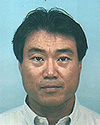 |
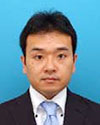 |
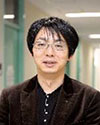 |
| 伊藤 宗彦 Munehiko Itoh |
下野 由貴 Shimono Yoshitaka |
加藤 厚海 Atsumi Kato |
要旨:
タイの自動車産業のサプライ・チェーンについて分析した。自動車産業のサプライ・チェーンは極めてすそ野が広く、多くのサプライヤーが存在する。日本の自動車メーカーは、系列化によって、リーン生産方式という。極めて高品質な自動車を短期間で生産する仕組みを構築してきたが、タイは東南アジア地域では、日本企業の自動車生産の拠点として、50 年以上も生産を拡大しつづけている。日本のほぼすべての自動車メーカーはタイへの進出を果たしており、その自動車生産のサプライ・チェーンはどのようなものなのかを分析した。日本国内の自動車産業では、サプライヤーと自動車メーカーが長期的な取引関係を維持する、系列と言われる垂直的ネットワークが一般的である。このような取引関係では、多数のサプライヤーが、系列の自動車メーカーの要求に合わせて、設備や技術の蓄積を行う。自動車メーカーも、サプライヤーを独自のスペックの自動車を生産するための補完的技術や生産設備を有するサプライ・チェーンの一員としてとらえて分析した。
Abstract:
Analysis was done for supply chain for automobile industry in Thailand. Supply chain for automobile industry is extremely diverse and many suppliers exist. Japanese automobile makers’ production is called lean manufacturing method due to keiretsu. In Japan, production method was built along producing high quality automobile in short period but in Thai and other Southeast Asian areas using Japanese companies as base of operation, production have been expanding for over 50 years. Almost all of Japanese automobile makers have already expanded into Thailand and analysis was done on what these supply chains are like. Automobile industry inside Japan, long lasting vertical relationship between supplier and automobile maker called keiretsu is the norm. In these kinds of transaction relationship, multiple suppliers will accumulate equipment and technology depending on what the automobile maker demands. Also automobile maker thought of suppliers as part of supply chain that has technology and equipment to produce original cars of the automobile maker.
タイの自動車産業のサプライ・チェーンについて分析した。自動車産業のサプライ・チェーンは極めてすそ野が広く、多くのサプライヤーが存在する。日本の自動車メーカーは、系列化によって、リーン生産方式という。極めて高品質な自動車を短期間で生産する仕組みを構築してきたが、タイは東南アジア地域では、日本企業の自動車生産の拠点として、50 年以上も生産を拡大しつづけている。日本のほぼすべての自動車メーカーはタイへの進出を果たしており、その自動車生産のサプライ・チェーンはどのようなものなのかを分析した。日本国内の自動車産業では、サプライヤーと自動車メーカーが長期的な取引関係を維持する、系列と言われる垂直的ネットワークが一般的である。このような取引関係では、多数のサプライヤーが、系列の自動車メーカーの要求に合わせて、設備や技術の蓄積を行う。自動車メーカーも、サプライヤーを独自のスペックの自動車を生産するための補完的技術や生産設備を有するサプライ・チェーンの一員としてとらえて分析した。
Abstract:
Analysis was done for supply chain for automobile industry in Thailand. Supply chain for automobile industry is extremely diverse and many suppliers exist. Japanese automobile makers’ production is called lean manufacturing method due to keiretsu. In Japan, production method was built along producing high quality automobile in short period but in Thai and other Southeast Asian areas using Japanese companies as base of operation, production have been expanding for over 50 years. Almost all of Japanese automobile makers have already expanded into Thailand and analysis was done on what these supply chains are like. Automobile industry inside Japan, long lasting vertical relationship between supplier and automobile maker called keiretsu is the norm. In these kinds of transaction relationship, multiple suppliers will accumulate equipment and technology depending on what the automobile maker demands. Also automobile maker thought of suppliers as part of supply chain that has technology and equipment to produce original cars of the automobile maker.